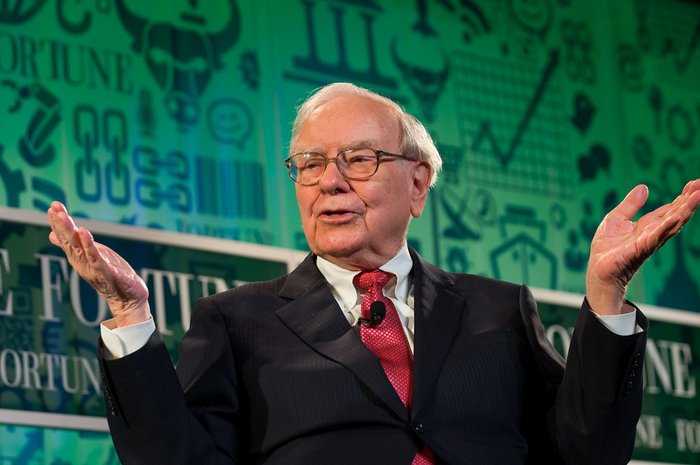Berkshire Hathaway bank stock sell-off is making headlines again. As one of the most closely watched investment firms in the world, Berkshire Hathaway’s moves often send ripples through Wall Street. When Warren Buffett and his team start selling bank stocks—especially during uncertain times—investors take notice.
In recent quarters, Berkshire Hathaway has been consistently reducing its holdings in major U.S. banks. From trimming long-time positions in giants like Wells Fargo and U.S. Bancorp to selling off Goldman Sachs and JPMorgan Chase completely, the sell-off is no longer just a portfolio reshuffle. It’s being seen by many as a cautious signal—one that deserves attention.
So, what’s behind this strategy? Why is the Oracle of Omaha moving away from banks? And what could this mean for the broader market? Let’s break it down in simple terms.
A History of Banking Bets
Warren Buffett has long favored the banking sector. Over the decades, Berkshire Hathaway has built sizable positions in several financial institutions. This is largely because banks, in Buffett’s view, offer solid returns on equity, strong cash flow, and often operate in an oligopoly-like environment.
Buffett once said, “Banking is a very good business if you don’t do dumb things on the asset side.” For years, he stood by this belief, even during turbulent times like the 2008 financial crisis when Berkshire stepped in to back institutions like Bank of America and Goldman Sachs.
That’s why the current Berkshire Hathaway bank stock sell-off feels so different. It’s not about one bank, or even a handful. It’s across the board.
Recent Moves: A Closer Look
Over the past few years, Berkshire Hathaway has made notable adjustments in its bank holdings. Here are some of the biggest changes:
- Goldman Sachs: Completely exited by Q2 2020 after holding a significant stake since the 2008 bailout
- Wells Fargo: A long-time favorite, but Buffett has sold off nearly all of it
- JPMorgan Chase: Once praised by Buffett, now entirely off the books
- U.S. Bancorp and Bank of New York Mellon: Substantial reductions in stake
- Citigroup: Berkshire trimmed its stake by nearly 50% in Q1 2024
- Bank of America: Still remains the largest bank holding but hasn’t seen any additions lately—possibly signaling hesitation
All of this comes during a time of rising interest rates, tightening regulations, and growing concerns over regional banks’ stability. The timing is important.
Why Is Berkshire Selling Bank Stocks?

Let’s explore the possible reasons behind the ongoing Berkshire Hathaway bank stock sell-off.
1. Economic Uncertainty
With inflation remaining sticky, interest rates high, and fears of a mild recession still present, banks are in a tough spot. Higher rates increase loan costs and reduce borrowing activity. Default risks may also rise.
Buffett is known for his conservative nature. Selling banks might be his way of reducing exposure to riskier sectors in a potentially volatile economy.
2. Banking Crisis Fears
In 2023, the collapses of Silicon Valley Bank, Signature Bank, and First Republic Bank rattled the industry. While Berkshire did not hold shares in these regional banks, the shockwaves they sent exposed vulnerabilities in the system.
It’s possible that Buffett and his team are seeing systemic risks others aren’t fully pricing in yet.
3. Regulatory Pressure
Increased scrutiny and regulation of financial institutions—especially after the 2023 mini-crisis—might be another factor. Tighter rules can restrict banks’ profitability and flexibility.
4. Better Opportunities Elsewhere
Berkshire Hathaway has been deploying capital into other sectors like energy (Occidental Petroleum), consumer goods (Apple), and even Japan’s trading houses. The shift suggests that Buffett may see better long-term growth potential outside traditional U.S. banks.
Market Reactions and Investor Sentiment
Whenever Berkshire Hathaway makes a major move, especially involving its high-profile holdings, investors react. The bank stock sell-off has caused some market watchers to grow cautious.
- Some analysts argue that Buffett is positioning for a longer period of economic stagnation
- Others believe he’s simply rotating out of old favorites in favor of new winners
- Retail investors, who often follow Berkshire’s holdings through 13F filings, are now questioning whether it’s time to rethink their own exposure to bank stocks
In many ways, Buffett’s caution acts like a weathervane for the rest of the market.
What Does This Mean for the Average Investor?

The Berkshire Hathaway bank stock sell-off doesn’t necessarily mean that all bank stocks are doomed. But it is a warning flag.
Here’s what individual investors should consider:
- Diversify: Don’t put all your eggs in one basket. Just because banks performed well in the past doesn’t guarantee future success
- Stay Informed: Pay attention to macroeconomic indicators. Interest rates, inflation, and loan defaults all impact banks
- Reassess Risk: Ask yourself whether you’re too heavily exposed to a single sector. Look at your portfolio with fresh eyes
- Follow the Fundamentals: Berkshire’s strategy is rooted in deep financial analysis. If you’re holding a bank stock, understand its balance sheet, credit exposure, and earnings outlook
Will This Trend Continue?
It’s hard to say whether Berkshire will completely exit all bank holdings. After all, Bank of America remains a large part of its portfolio, and Buffett has historically shown loyalty to companies he believes in.
However, the trend of scaling back bank stocks seems more than temporary. It aligns with Buffett’s cautious tone in recent annual shareholder meetings, where he repeatedly emphasized the importance of safety, liquidity, and being ready for “unknown unknowns.”
If Buffett sees uncertainty ahead, that’s enough for many investors to pause and reevaluate.
Buffett’s Broader Strategy: Playing Defense
Over the last few years, Berkshire Hathaway’s investment strategy has been more defensive:
- High Cash Reserves: As of mid-2024, Berkshire holds over $150 billion in cash and short-term Treasuries
- Selective Buying: Rather than scooping up distressed assets, Buffett has been highly selective, buying only where he sees clear long-term value
- Reduced Financial Exposure: Selling off bank stocks and cutting insurance exposure are both signs of minimizing financial sector risk
It’s a strategy that signals caution over speculation.
Final Thoughts: A Subtle Warning
The Berkshire Hathaway bank stock sell-off is more than just another portfolio adjustment. It reflects Warren Buffett’s view on the current and future state of the economy. While he may not be sounding the alarm outright, his actions are speaking volumes.
For investors, this isn’t a call to panic. But it is a cue to pay closer attention. In a market full of noise, Buffett’s quiet exit from banking might just be one of the clearest signals to watch.
Read Next – UBS Warns Criteria for a Tech Bubble Almost All Met






